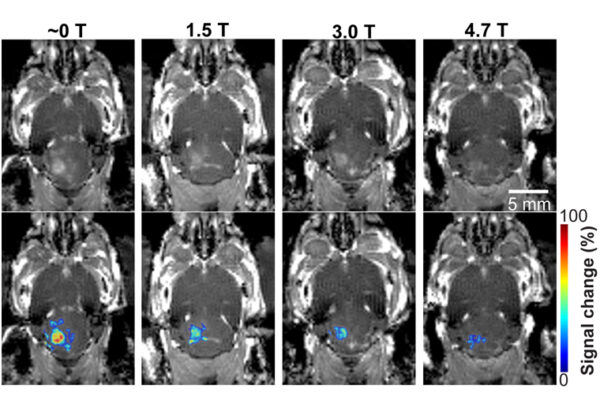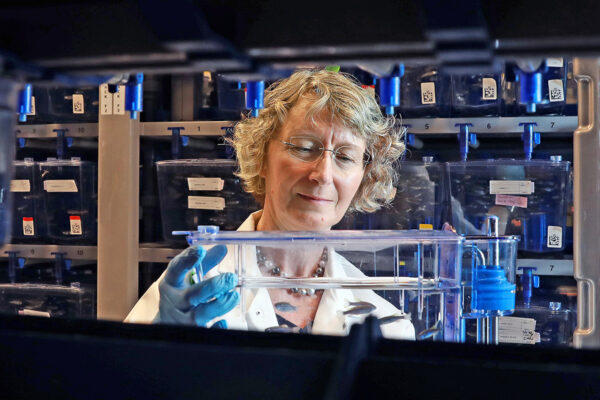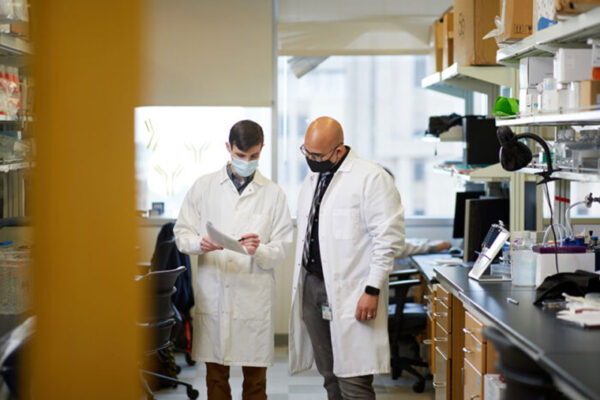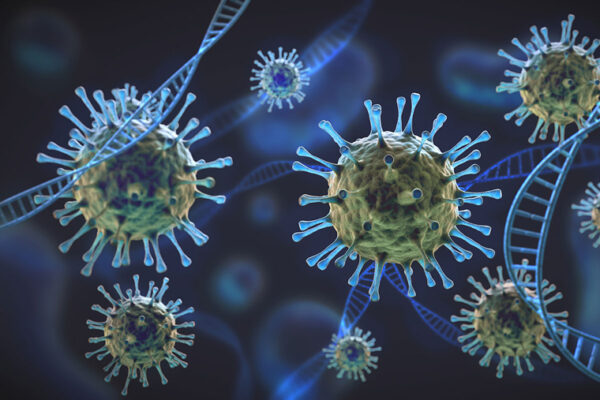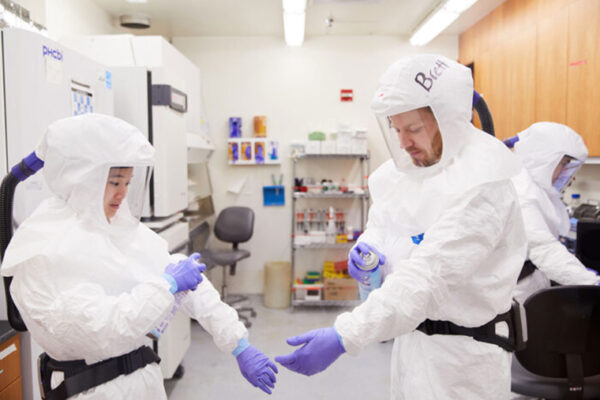MRI’s magnetic field affects focused ultrasound technology
Research from the McKelvey School of Engineering highlights the interaction between MRI and focused ultrasound with microbubbles.
Four physician-scientists named Dean’s Scholars
The Division of Physician-Scientists at the School of Medicine has selected four physicians for its second class of Dean’s Scholars. The program provides up to two years of financial support and mentorship to aspiring, early-career physician-scientists, along with dedicated time for conducting laboratory research.
Developmental biologist receives NIH grant
Kristen Kroll, professor of developmental biology at the School of Medicine, has received a four-year $2.1 million grant from the National Institutes of Health (NIH) for her project on human interneuron progenitor specification.
Researcher receives NIH funding for zebrafish work
Lilianna Solnica-Krezel, at the School of Medicine, has received a five-year $3.36 million renewal grant from the National Institute of General Medical Sciences of the National Institutes of Health (NIH) for her project “Inductive and Morphogenetic Processes Shaping the Zebrafish Embryonic Axes.”
COVID-19 vaccine generates immune structures critical for lasting immunity
A study from School of Medicine researchers, published in the journal Nature, has found evidence that the immune response to the first two COVID-19 vaccines authorized by the FDA is both strong and potentially long-lasting.
Virus that causes COVID-19 can find alternate route to infect cells
The virus that causes COVID-19 normally gets inside cells by attaching to a protein called ACE2. School of Medicine researchers have found that a single mutation confers the ability to enter cells through another route.
COVID-19 dual-antibody therapies effective against variants in animal study
New research at Washington University School of Medicine suggests that many COVID-19 therapies made from combinations of two antibodies are effective against a wide range of variants of the virus.
Cheng honored for work to advance pain relief without adverse effects
Wayland Cheng, MD, PhD, assistant professor of anesthesiology at the School of Medicine, has received the 2021 Frontiers in Anesthesia Research Award from the International Anesthesia Research Society. The prestigious $750,000 award, which is given only once every three years, funds projects with an eye toward developing future leaders in anesthesiology.
What makes us sneeze?
A team led by researchers at the School of Medicine has identified, in mice, specific cells and proteins that control the sneeze reflex. Better understanding of what causes sneezing may point to treatments to slow the spread of infectious respiratory diseases.
Rudra receives NSF CAREER Award
Jai Rudra, assistant professor at the McKelvey School of Engineering, will use a CAREER Award from the National Science Foundation to study chirality in nanomaterials and ultimately help design safer synthetic nanomaterial vaccines.
Older Stories
